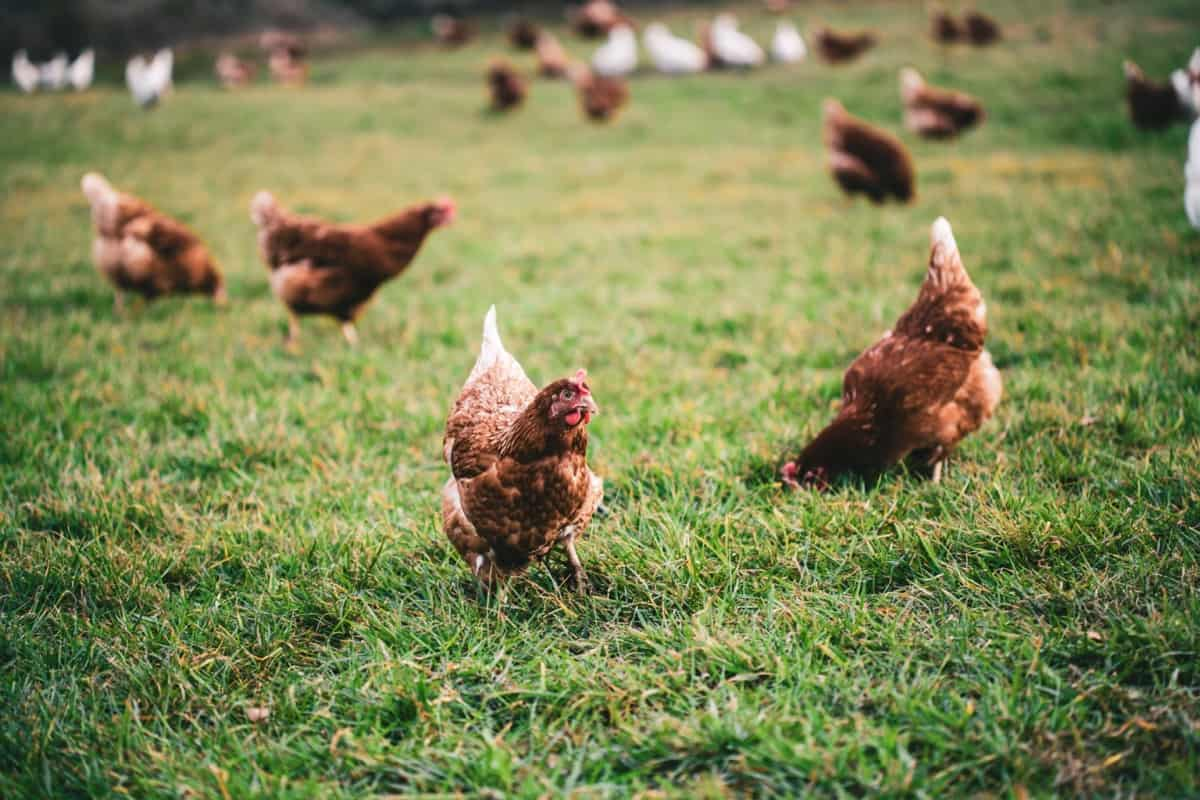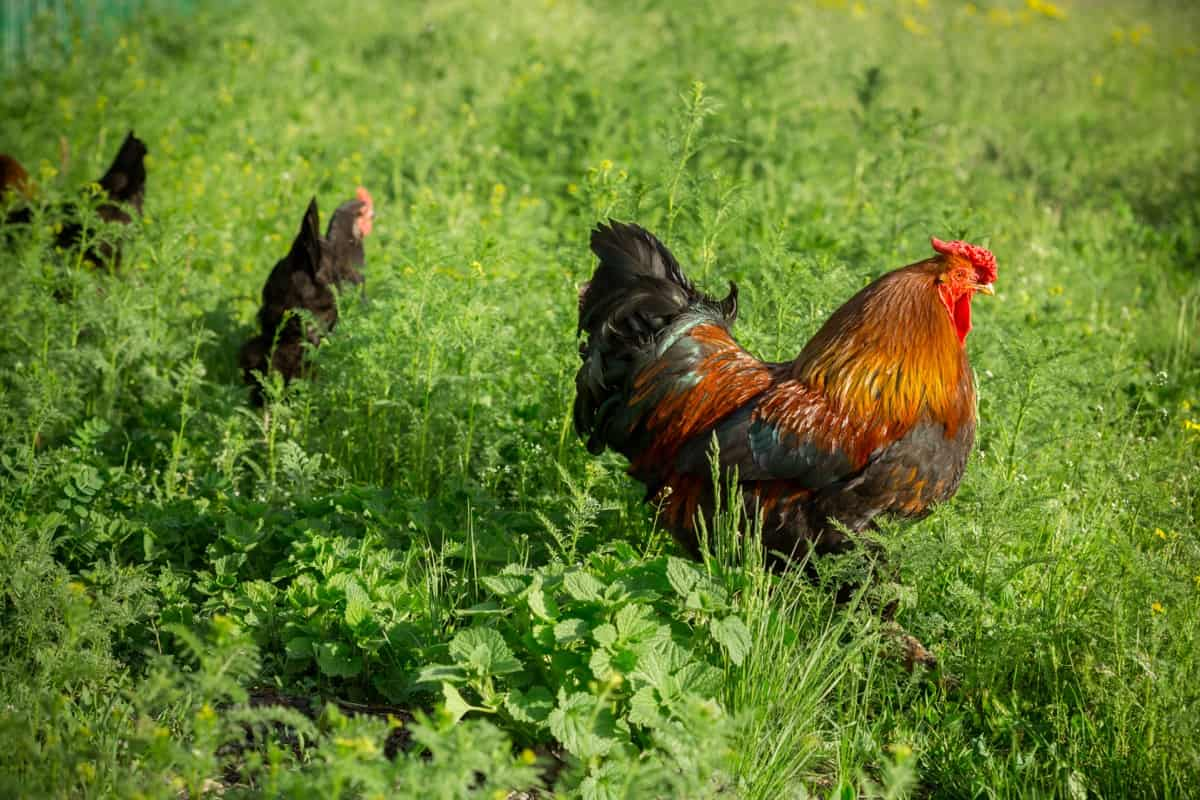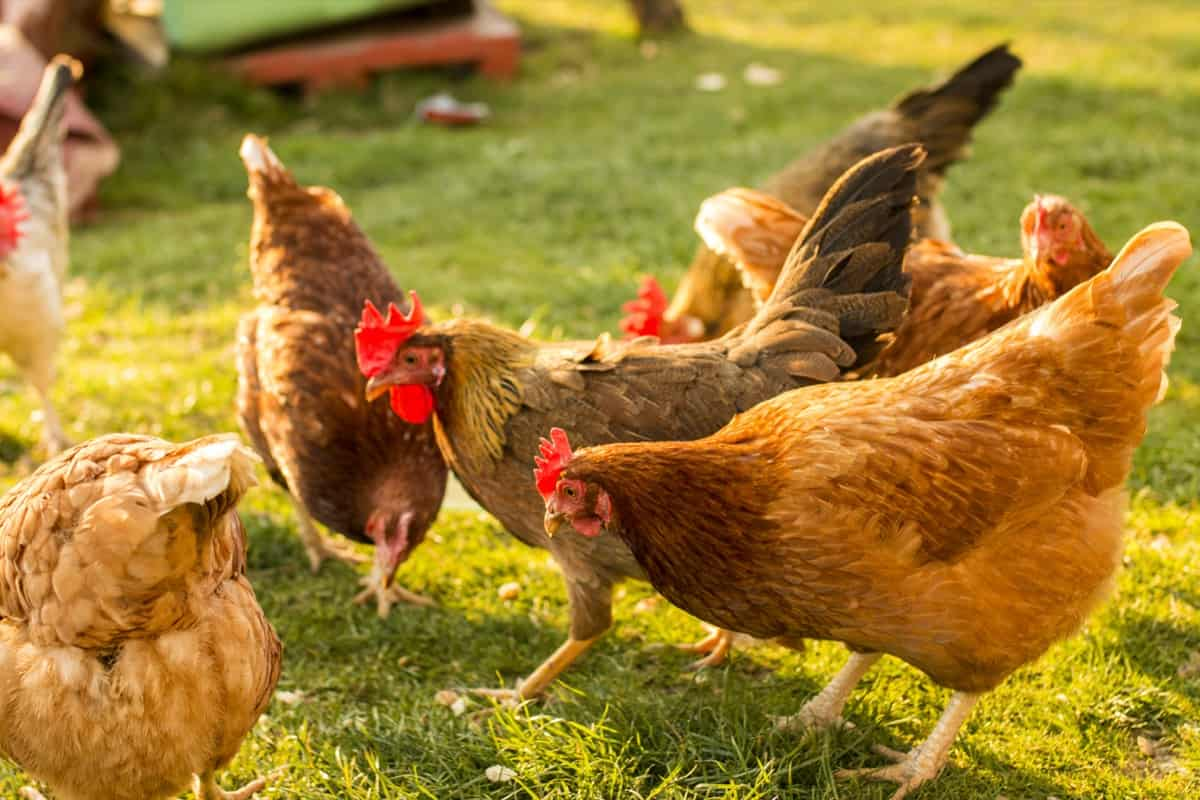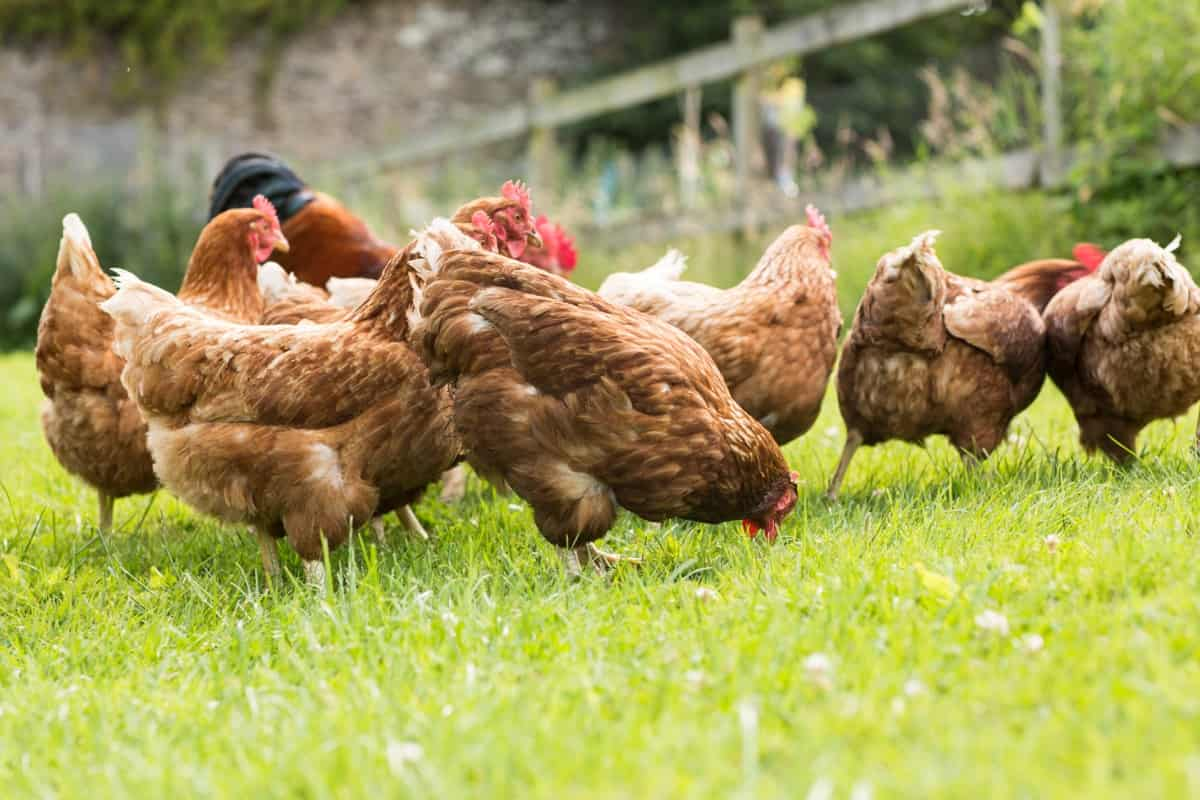Herbicides and pesticides play a crucial role in modern agriculture, aiding in controlling weeds, insects, and other pests that can harm crop yields. Some concerns have been raised concerning these chemicals’ potential impact on chickens, commonly raised for meat and eggs. This article explores the safety of herbicides and pesticides for chickens, considering their potential risks and organic and natural approaches to reduce the use of herbicides and pesticides.

Are Herbicides and Pesticides Safe for Chickens
Potential Risks to Chickens From Herbicides and Pesticides
Chickens are exposed to several potential risks when using herbicides and pesticides around them. In several ways, chickens can be exposed to these chemicals that may pose health hazards. It is essential to understand these risks to protect your flock’s well-being.
Direct Contact With These Chemicals
Herbicides and pesticides may come into direct contact with chickens when sprayed on or applied to areas where chickens roam or forage. In some cases, the chemicals can adhere to their feathers, skin, or feet, causing them to absorb them into their bodies. Depending on the toxicity of the chemical, direct contact can cause skin irritation, respiratory distress, or even systemic toxicity.
Consuming The Contaminated Plants or Insects
Chickens are natural foragers and can consume insects and plants in their environment. The chickens can ingest herbicides and pesticides if these plants or insects have been treated with them. As a result, their digestive system, liver, and other vital organs can become toxic. In severe cases, diarrhea, decreased appetite, weight loss, or acute poisoning may result.
Contaminated Soil and Water Sources
Pesticides and herbicides can persist in the environment, including soil and water on your property. As chickens peck at the ground or drink contaminated water, they may accidentally ingest these substances. As these chemicals accumulate in their systems over time, they can have long-term health implications and may even affect their ability to reproduce and produce eggs.
Short-term and Long-term Health Effects
Herbicides and pesticides can cause various health problems in chickens. Some short-term effects may include respiratory distress, skin irritation, gastrointestinal disturbances, and reduced overall well-being. It is well known that long-term exposure to certain persistent or cumulative chemicals can lead to chronic health problems, compromised immune function, lowered fertility, and increased susceptibility to disease.
In case you missed it: 10 Best Fancy Breeds of Chickens: Do Ornamental/Fancy Chickens Lay Eggs?

Adverse Effects on Eggs and Meat
If chickens are exposed to herbicides and pesticides, chemical residues can accumulate in their eggs and meat. This raises concerns about consuming eggs or meat from birds exposed to such chemicals. Especially if you intend to consume products from your chickens or sell them for human consumption, you should be aware of these risks.
Common Signs Your Chicken Has Ingested Herbicides or Pesticides
- Your chicken may show signs of agitation, restlessness, or lethargy if its behavior changes. Their nervous system may be affected by chemical exposure, resulting in abnormal behavior.
- In chickens, chemical exposure can cause respiratory problems. You may notice symptoms like coughing, wheezing, sneezing, and difficulty breathing if your chicken has been exposed to herbicides.
- The consumption of herbicides or pesticides can disrupt the digestive system of chickens. Watch for diarrhea, vomiting, loss of appetite, or changes in their droppings. These symptoms may indicate chemical toxicity.
- The exposure of a chicken to chemicals can adversely affect its reproductive system, producing fewer eggs. Chemical ingestion could cause a sudden decrease in egg production, irregular egg quality, or abnormal nesting behavior.
- Some chemicals can cause chickens to develop skin irritations or lesions. Check your chicken’s skin for rashes, redness, swelling, or abnormal growth. Symptoms of discomfort may also include excessive scratching or pecking.
- In cases of severe chemical exposure, chickens may exhibit neurological symptoms. The symptoms can include uncoordinated movements, tremors, seizures, or paralysis.
Organic and Natural Approaches To reduce the Use of Herbicides and Pesticides
Chicken keepers who avoid synthetic chemicals can use organic and natural weed and pest control approaches. Using these effective alternatives, you can use these methods to promote a chemical-free environment for your chickens.
Plant Companion Plants to Control Pests
Companion planting involves planting certain plants strategically to deter pests or attract beneficial insects. You can repel pests naturally by planting aromatic herbs around the chicken coop, like lavender, rosemary, and mint. In vegetable gardens, marigolds and nasturtiums are also known to deter pests.
Apply Mulching To Stop Growing The Weeds
Mulching suppresses weed growth and creates a barrier that deters pests. You can prevent weed growth by applying organic materials around plants and pathways. These materials include straw, wood chips, and shredded leaves. Doing this reduces the need for herbicides and creates a more natural and sustainable environment for your chickens.
In case you missed it: The Hamburg Chicken Breed Profile

Weed Removing Mechanically
Remove weeds manually or with handheld tools regularly. You can target weeds directly with this physical approach instead of using chemical herbicides. Stay diligent in weed management to prevent weeds from overtaking your chicken’s foraging areas.
Use Natural Pest Deterrents In Your Garden
Keep unwanted insects at bay with natural pest deterrents. Slugs and snails can be deterred by placing crushed eggshells around plants. Installing bird feeders or bird houses near your chicken coop can attract birds that feed on insects, thus helping control pest populations naturally.
Introduce And Encourage Beneficial Insects In Garden
Manage pest populations by encouraging beneficial insects in your garden or foraging areas. Aphids and other garden pests can be controlled by ladybugs, lacewings, and praying mantises, which are natural predators. You can attract beneficial insects by planting flowers such as daisies, sunflowers, or yarrow.
Install Natural Barriers
Protect vulnerable plants from pests by creating physical barriers. Use floating row covers or netting to protect plants from insects or birds. This method allows air and sunlight to reach the plants while providing a physical barrier.
Maintain Healthy Ecosystem
The key to naturally managing pests is maintaining a balanced and healthy ecosystem. You can foster biodiversity by planting diverse plants, providing shelter, and preserving natural habitats. Diverse ecosystems support beneficial insects, birds, and other wildlife that help control pest populations.
In case you missed it: Discover the Top 12 Best White Chicken Breeds for Your Backyard Flock

Conclusion
When used correctly and following regulatory guidelines, herbicides, and pesticides can be safely employed in agriculture without posing significant risks to chickens. However, farmers and agricultural professionals must exercise caution, take necessary safety measures, and adhere to regulations to minimize any potential harm to these animals.
- Feed Your Flock for Less: Top 10 Tips to Save on Chicken Feed
- Ultimate Guide to Ossabaw Island Hog: Breeding, Raising, Diet, and Care
- Hatching Answers: The Top 10 Reasons Your Chickens Aren’t Laying Eggs
- Eggs and Economics: Breaking Down the Cost of Raising Backyard Chickens
- Defend Your Greens: Proven Methods to Keep Iguanas Out of Your Garden
- Ultimate Guide to Cinnamon Queen Chicken: A Comprehensive Guide for Beginners
- Ultimate Guide to California Tan Chicken: Breeding, Raising, Diet, Egg-Production and Care
- Ultimate Guide to Marsh Daisy Chicken: Breeding, Raising, Diet, and Care
- 10 Types of Chicken Farming Businesses You Can Start for Profits